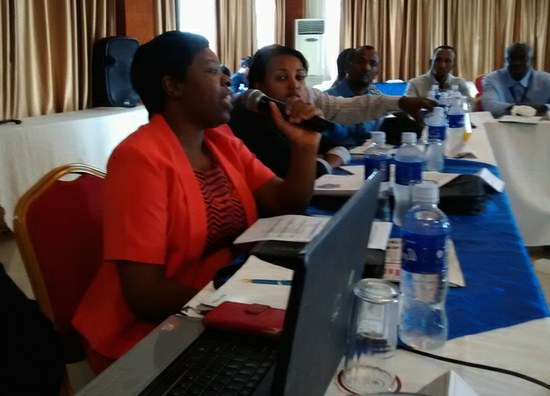 For the past decade Cordaid has continuously been seeking to improve public service delivery through results based financing. In both health care and education we have an extensive track record in Africa and Asia. And we’re working with leading experts in the field. One of them is professor Donald S. Shepard, who recently joined our RBF training course for policy makers in Zimbabwe.
For the past decade Cordaid has continuously been seeking to improve public service delivery through results based financing. In both health care and education we have an extensive track record in Africa and Asia. And we’re working with leading experts in the field. One of them is professor Donald S. Shepard, who recently joined our RBF training course for policy makers in Zimbabwe.
The last 10 years Cordaid set up pioneering RBF projects in countries like Burundi, the Central African Republic and Afghanistan, measurably improving health care and education systems. In recent years others have picked up the trail and the RBF approach is now being implemented in more than 30 countries.
But as more funds are becoming available for RBF-related initiatives, notably from the World Bank, the need for formal training in the relatively new financing approach is growing among policy makers in developing countries. Only a handful of organizations offer this kind of training. Cordaid is one of them.
Our most recent RBF training course took place in Zimbabwe, where Cordaid and the University of Zimbabwe gave a 10-day course for senior policy makers and implementers from several African countries. One of the guest lecturers was Donald S. Shepard, professor at the Heller School (Brandeis University) and director of the group on cost and value within the Heller School’s Schneider Institute for Health Policy.
A promising tool
Inbetween workshops and discussions about the in’s and out’s of RBF and health systems reform, professor Shepard, took the time to answer some questions. “The World Bank has made RBF a major priority”, he explains. “For them and other donors it is a promising solution. Many countries failed to reach the Millennium Development Goals. They need stronger health systems but are dealing with constraints on resources. And RBF is seen as a solution to overcome those constraints.” Shepard, who has evaluated RBF programs in Haiti and several African countries including Zimbabwe, agrees that it is a promising tool, with visible though not always spectacular results. The RBF program in Zimbabwe that Shepard evaluated, for example, showed that several indicators significantly increased within the first two years, notably the number of institutional-based deliveries, which increased by 15%.
Finding out what works and what doesn’t
Trainings such as the one organized by Cordaid and the University of Zimbabwe are important for two reasons, Shepard explains. “First they help those who are running RBF programs to better understand the concept and workings of the approach. That’s very important. You may have a well-designed program, but if the administration is mediocre, the results will be mediocre as well or even non-existent. Secondly, this training helps policy makers and RBF consumers to better see which program health indicators are working well and which aren’t and to find out what wasn’t done right.” He hopes that Cordaid and the University of Zimbabwe will continue to build on what they have started. In his opinion it is crucial to offer a broader course that allows participants to compare RBF to other tools that are used to improve health care systems.
The importance of community involvement
Shepard was impressed by the attention, honesty and openness of the participants. One of them was Sibert Makuhza, involved in the implementation of a health care RBF pilot in the city of Harare. “I came here to enhance my skills and learn from other colleagues. And this practically oriented course did just that. One of the major learnings I will take home is the importance of community involvement in RBF programs and health service delivery improvements. I now realize we could do a lot more to involve local health communities.
Ensuring equity
Alhaji Sankarah, a government official for The Gambia who is also involved in RBF implementation in his country, who also participated, underscores the value of the training. In the end, he says, it helps him “to ensure there is equity in the health service delivery and that the implementers of health care RBF programs at community levels and in the health facilities are well motivated.” Of one thing Sankarah is certain, which is that “RBF is the right approach to give access to health care to the underprivileged.”
Read more
- Get to know more about RBF programs in Zimbabwe or in South-Kivu (DRC).
- Download the Cordaid brochure on RBF in healthcare systems.
Source: Cordaid healthcare news, February 2016
